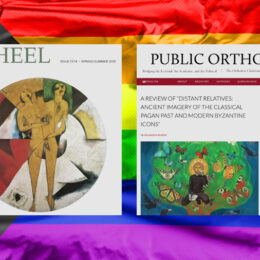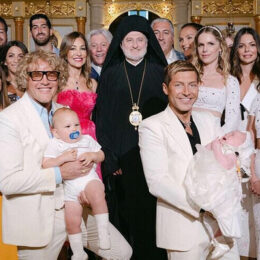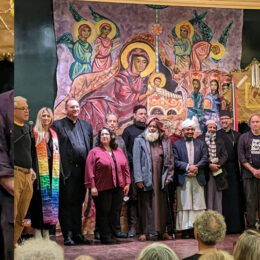by Jack Kerwick –
My pastor’s homily was but the latest confirmation of that what many an astute observer has long observed: the “progressivism” of secular leftism has made sizable inroads into the Catholic Church. This is no mean feat. In fact, the significance of the left’s infiltration into this institution has gone largely unnoticed.
Whatever one may think of its theology and ecclesiology, the cold heart fact of the matter is that the Catholic Church is not just one more institution among others. Structurally and doctrinally, it is the emblem par excellence of the ancient world, a continual reminder to our generation that its life did not begin yesterday, and that Western civilization would be unrecognizable, and probably nonexistent, without it, the Catholic Church reminds us as well that we are living off of a cultural capital that was millennia in the making. Its unabashed affirmation of the centrality of tradition to right conduct, its hierarchical conception of authority, its exclusion of females and homosexuals from the priesthood, and its demand that its clergy take a vow of celibacy are some of the more salient respects in which the Catholic Church has not only distinguished itself from the leveling impulses of our age, but resisted them.
In other words, the Catholic Church is the most formidable line separating what we may call, on the one hand, “the traditional morality” of which it is has always been the preeminent bulwark and, on the other, “the secular morality” that is forever striving to drive it into extinction. If the Church permits itself to be subjugated by the left’s moral vision, then it is inevitable that every other institution will be wholly consumed by it also.
If the Church permits itself to be subjugated by the left’s moral vision, then it is inevitable that every other institution will be wholly consumed by it also.
Make no mistakes about it, the issue that my pastor addressed is an invaluable one. And it seems to me that there can be no question that the position to which he gave expression-the position that, in spite of what we may uncritically suppose, charity is in reality a form of justice-is indeed the only position to which a Christian can subscribe.
What concerns me, though, is that he insisted upon equating “justice” with “equality.”
Now, “equality” is a term ridden with ambiguity. Like the “justice” in conjunction with which my pastor spoke of it, it is a “concept” susceptible to multiple “conceptions,” to use Ronald Dworkin’s distinction. And some of these conceptions of “equality” are mutually incompatible.
As conservatives and classical liberals have usually understood the concept, “equality” refers to a formal procedure (or set of procedures) to which all members of a legal association (“a state” or “society”) are equally bound. These procedures are laws, and they are theoretically consistent with more than one kind of constitution: neither monarchy, oligarchy, aristocracy, democracy, nor some combination of such arrangements preclude equality in this sense. It is also consistent with much individual freedom or very little of it.
On the leftist’s account of it, equality is a substantive condition in which material discrepancies between “classes” of people are resolved, a condition to be imposed by government through any number of “redistributive” schemes. This understanding of equality is not only different from that held by the conservative and the libertarian, it is radically incompatible with it, for it is necessary that people be treated according to different sets of standards if the leftist’s dream of equality is to come to pass.
all human beings are equal by virtue of being made in the image of God
There is a third conception of “equality” according to which all human beings are equal by virtue of being made in the image of God. But it only those who take exception to its theological ground who would want to quarrel with it; it is logically compatible with both of the forgoing statements of equality. Thus, my pastor must have had one or the other of them in mind when coupling “equality” with justice in his sermon.
Although “the rule of law” is an immense historic achievement, it is the freedom or liberty that it makes possible-not the equality intrinsic to it-that has made it the stuff of sermons and speeches (even if mostly in times past). In identifying “justice” with “equality,” it was clearly the leftist’s vision of equality with which my beloved pastor was sympathizing. His reference to the “root causes” of poverty which Christians have a “duty” to address is the one clue that dispels all doubt.
Yet in all of my readings of the New Testament, to say nothing of the Old Testament, I at no time recall Jesus or any of His apostles commanding “equality.” He demands of us that we attend to the needy, for sure, but it is far from clear that His commandment to love neighbor as oneself arises from a desire to see material inequalities ameliorated. If my neighbor has a more lucrative job and bigger home than me, these are inequalities, but they certainly don’t oblige him to part with his legitimately acquired goods so that he and I can be on the same material footing. Even if I had no resources while my neighbor possessed more than anyone could need for a lifetime, this in itself still wouldn’t constitute an injustice: while he would have a duty to try to help me to help myself, he would have no duty to divest himself of his holdings just to satisfy some abstract criterion of equality. To suggest otherwise is to read back into Scripture a bias that it doesn’t possess and which is arguably anathema to it.
The left has penetrated the Catholic Church. This I have known for quite some time. What saddens me, however, is that among its carriers are genuinely good men and fine priests like my pastor.
HT: American Thinker (read full article)



